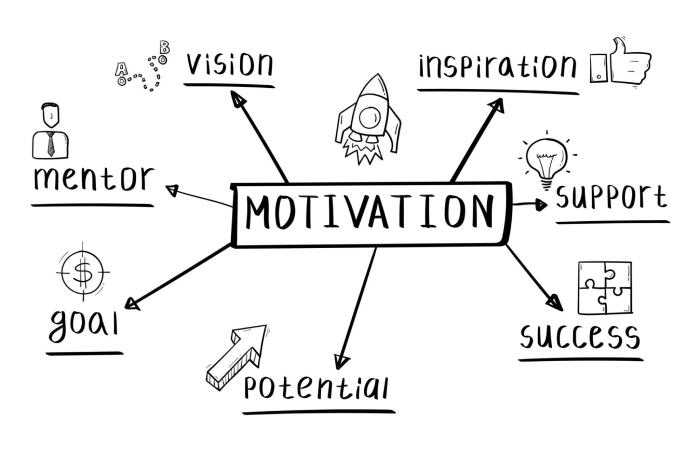About Employee Motivation Tips and Benefits
Employee motivation tips and benefits are the keys to an organization’s success, and it is the commitment, drive, and energy that a company’s employees bring to this role every day. Without it, companies experience reduced productivity and lower production levels and are likely to miss essential goals.
But employee engagement isn’t always easy—leaders must nurture and monitor the workplace.
What is Employee Motivation?

Employee motivation is the promise, energy, and innovation that a company’s employees bring to the table during the workday.
Maintaining and refining motivation in the workplace can be problematic for many companies, as not each task will be enjoyable. Therefore, companies must find ways to motivate their employees.
Why are Employee Motivation Tips and Benefits so Important?
Imagine an employee whose work motivation is shallow. They are likely to work slower, avoid tasks, and spend time on their phones. But above all, they are unfocused and do not put energy into their work.
Not only is this wasting your resources, but it could also affect other employees and potentially prevent the entire organization from performing at the highest level or achieving essential goals.
Additionally, motivated employee is enthusiastic, driven, and proud of their work. They get things done quickly, take action, and want to do a good job for themselves and the company.
Employee motivation is essential whether your company is at its best or rising. By the time it drops, sales and production could soon follow.
What are the Benefits of Employee Motivation?
Higher Productivity
Not surprisingly, implementing employee engagement techniques encourages people to work productively and leads to better sales results. However, few people know that a productive way of working also positively influences the employee experience, as it promotes greater job satisfaction.
More Innovation
Motivating employees with bonuses and other benefits creates a culture of innovation. In addition, when employees feel valued and supported by their organization, they want to challenge themselves. Therefore, the importance of motivation in the workplace should never be underestimated as it drives growth. Furthermore, managers who recognize the benefits that motivate their teams tend to achieve the best results.
Less Absenteeism
Employers who know the importance of motivation in management accept that leaders bring out the best in their teams when they are supportive, not judgmental. In addition, when a manager cares about the workload and well-being of their team, absenteeism tends to be lower as employees feel less worried and overwhelmed.
Less Staff Turnover
Employee benefit and motivation go hand in hand and together contribute to exceptionally high retention rates. When employees receive benefits in addition to rewarding incentives, they are highly motivated and unlikely to seek another position, especially when other companies can’t match your compensation package.
Excellent Reputation and Stronger Recruitment
Organizations that understand how to increase employee engagement often offer exceptional experiences and have a strong internal brand. However, this does not happen overnight. A robust internal brand results from data-driven strategies that rely on employee feedback. Companies with established brand ambassadors, or in other words. Satisfied and motivated employees retain and attract the best talent.
How to Increase Employee Motivation? 10 Tips for Motivated Employees
1. Lead with Vision
Everyone wants to know that their efforts will lead to something. So what is the next step? What does achievement look like for the company? A goal helps motivate the journey so the company vision is clear.
2. Make Sure Everybody Understands the “Why.”
Your employees will recognize what to do, but you need to explain it more; you need to communicate the “why” of each task. For example, what is the overall mission of the company? When everyone knows how their actions can personally contribute to the company’s overall goal, it provides the necessary motivation for even the most straightforward task.
3. Set Clear Goals Frequently
You have big aims you want to achieve as a company, but smaller goals are crucial to motivation. All plans should contribute to the overall project, but breaking it down into more achievable chunks feels less overwhelming. When employees hit goals frequently, the sense of satisfaction grows and is a great motivator to move on to the following set of plans.
4. Recognize and Reward Outstanding Work
Employees need to know that their managers increase in value their hard work. Giving well-deserved recognition boosts not only self-esteem but also enthusiasm and team morale.
A recognition platform is an effective tool for celebrating high achievers who embody your company’s values. It is important to support employees with team-building exercises, wellness programs, and EAP programs throughout the year. For special occasions like, However, for example, the 10th anniversary of work or employee of the month, we recommend you go one step further and reward your teams.
The reward doesn’t have to be monetary; it could be a gesture, like B. giving a day off. Rewards are excellent promoters of motivation and job fulfilment. So if you want to inspire your employees to go the extra mile, make their effort worthwhile with a gift or thoughtful act.
5. Give Autonomy to Your Team
Time is valuable. So when we feel like we’re not in control of our time and energy, motivation can wane. Allowing some element of freedom in the workplace, whether flexible hours or unlimited time off, demonstrates leaders’ trust in employees. This increases motivation, as the satisfaction of a job well done goes hand in hand with the sense that they were in control and did it on their terms.
6. Create a Welcoming Work Environment
No one wants to sit in a dingy office and desperately wait for home time every day. When workplaces create a friendly culture, with break and play areas, employees look forward to coming to work. The saying “work hard, play hard” is essential here. Since motivation and mood go hand in hand, a bad attitude can affect your ability to focus and reduce your sense of energy in the workplace.
7. Offers Impressive Benefits
Make everyone feel like they are working in the best possible place. Offering gifts and perks to employees, such as B. the wide range available through our platform of benefits and extras designed to enhance the lives of your employees both on and off the job, helps increase morale and a sense of loyalty towards the company.
8. Encourage Teamwork
Cooperation between teams in the company allows ideas to be further developed. Collaborating with people with different skills leads to more innovative results. In groups, power is in numbers, and those who feel unmotivated should let their environment strengthen them.
9. Create a Career
Nobody wants to be static for a long time. We must know we are going anywhere and focusing on the next stage. Ask employees what they need from their careers and what they need to do to get there. Have growth conversations with team members to chart a career path; this will help create the momentum to reach the next level and feel like they have a long and productive journey ahead of them within the company.
10. Support Employee Wellness
When organizations implement motivation strategies, well-being is often overlooked.
There’s no denying that using rewards as an incentive is a great motivator. However, if an employee feels tired or overwhelmed, he won’t do the best job, no matter how hard he tries.
A holistic approach to wellness is a great way to consider your teams’ mental, emotional, and physical health to keep them healthy, happy, and performing at their best.
Finally, how do You Extent and Maintain Employee Motivation?
It is difficult to assign a metric to measure employee engagement; the only natural way to measure this is to know how employees feel. For example, some professionals use employee engagement software; others host frequent 1-1 meetings.
Annual surveys are too infrequent, too challenging to measure, and too extended. In addition, by the time you ask for a response in a yearly study, employees may have been living with these issues for a year which can be detrimental to business. So instead, we recommend looking for a personal heart rate survey tool.
You can conduct short, frequent surveys and make it easy for HR to quickly collect and act on important feedback about what makes employees tick. As a manager or members of Human Resources, employees can find it challenging to be honest in personal conversations, so confidential questions are an excellent way to get a complete picture of the company.
The best solutions display their results on a real-time dashboard, so you can quickly measure trends and spot problems before they become more significant. This lets you understand what motivates employees and what they think is holding them back, so you can quickly implement a solution. You also have the opportunity to check in with them periodically to see if anything has improved or changed.
Showing you care, listening, and responding to the things that matter will keep you motivated.
Conclusion
Employee motivation tips and benefits, A motivated employee is a valuable asset that can provide immense value to the organization to sustain and strengthen business growth and revenue. Therefore, this article concludes that employee motivation is essential for organizational success.


